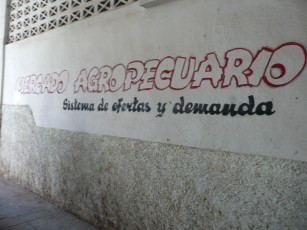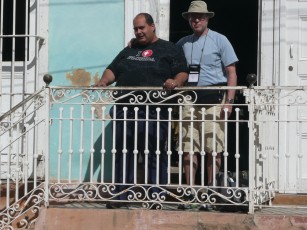
Posts by MurraySabrin:
Obama gets it all wrong
May 17th, 2016By Murray Sabin.
I sent the following letter to The Record today about President Obama’s Rugters commencement address.
Regarding “Obama celebrates with Rutgers” (Page A1, May 16):
President Obama’s commencement speech at Rutgers reveals his ignorance both as a historian and a former professor of constitutional law. America did not make progress because of “democracy”. America’s strength lies in its founding documents, the Declaration of Independence, namely, America was “conceived in liberty”, and the protections guaranteed to the people found in the Bill of Rights.
The American people’s incredible accomplishments over the past 230 years are due to the principles of free enterprise and limited government. When the federal government deviated from these fundamental truths, namely that freedom and liberty are indispensable to prosperity and social harmony, inevitably economic stagnation or worse, a depression, occurred.
And when presidents did not heed the wise words of our founders to avoid entangling alliances and going overseas “to destroy monsters”, America has intervened militarily around the world causing death and destruction to peoples who were no threat to us.
To the class of 2016 the evidence is overwhelming: collectivism, militarism, money printing, massive debts and entangling alliances are undermining your future. America will have a brighter future if presidents embrace a truly humanitarian vision for our country; respect for individual rights at home and peaceful relations with all peoples around the world.
Until that vision is implemented more economic and foreign policy crises will occur, and our progress be jeopardized by the utopian ideas of the collectivists who run the federal government
Comments Off on Obama gets it all wrong
Did this trigger Bridgegate?
January 22nd, 2014By Murray Sabrin.

The great mystery remains about the closing of two Fort Lee lanes to the George Washington Bridge in September 2013, now known as the “‘Bridgegate” caper. We still don’t know who ordered the closing, but we do know that it was not part of a traffic study to determine the impact of reducing the number of lanes to the bridge from the borough.
With all the speculation about what Gov. Christie knew about the lane closings, could there have been a “trigger” that may have caused the governor and/or his staff to retaliate against Fort Lee? In fact, the New York Times article (January 20), ”For Christie and MSNBC, a Messy Divorce Plays Out in Public View,” provides a clue that could be the “smoking gun” explaining why Fort Lee could have been the target of an egregious abuse of power, the closing of two lanes to the George Washington Bridge.
The article states, “Mr. Christie, who is known to be sensitive to slights…” may provide the mystery about “Bridgegate.”
At the groundbreaking ceremony in October 2012 for the first phase of the $1 billion project in Fort Lee, several public officials were present including Bergen County Executive Kathleen Donovan, Freeholder chairman John Mitchell, State Sen. Loretta Weinberg (D-37), State Assemblyman Gordon Johnson (D-37), Englewood Mayor Frank Huttle and Freeholder Joan Voss of Fort Lee. Neither Governor Christie nor Lieutenant Governor Guadagno was present.
The question, therefore that must be asked is: did Mayor Sokolich invite Gov. Christie to the ceremony? If so, why didn’t the governor show up? If he was busy campaigning for GOP presidential candidate Mitt Romney, then why wasn’t Lt. Gov. Guadagno sent in his place?
If Mayor Sokoloich did not invite Gov. Christie, was this the “slight” that triggered “bridge gate?” Gov. Christie’s theme for his first term in office is the ” Jersey Comeback.” What better way to highlight New Jersey’s comeback then to make remarks about a privately financed $1 billion development in Fort Lee, the gateway to New York City?
Until all the principals in the “Bridgegate” fiasco testify under oath, the above is just mere speculation. But given Christie’s supersize ego, his sensitivity to “slights,” and the cronyism that apparently is rampant in all administrations, playing hardball is what politics is all about.
So-called public service always takes a backseat to funneling money to the politically connected and soothing the egos of the high and mighty. Bridgegate, therefore, could be another case study of how government officials abuse their power for the benefit of the few at the expense of the general public.
Comments Off on Did this trigger Bridgegate?
Gov. Christie: New Jersey’s economic plan
December 25th, 2013
By Murray Sabrin.
Bridgegate:
I live one mile south of the George Washington Bridge in Fort Lee where the notorious three-tollbooth lanes designated for local traffic were restricted to only one for a few days in early September. Traffic in Fort Lee was horrendous. Gov. Christie asserted that these three tollbooths were used only for Fort Lee residents. This is a gross mischaracterization of the traffic going to the bridge during rush hour. Motorists from Fort Lee, Cliffside Park, Fairview, Edgewater, Guttenberg and probably other communities use that particular entrance to the GW.
What were Port Authority officials thinking when they restricted access to the bridge claiming they were conducting a traffic study to see the impact of closing two lanes?
Transportation studies can be conducted using a computer simulation to determine the effects of the lane closures without disrupting the actual traffic of an area being analyzed. In short, there was no need to close two of the lanes. Whatever the motives were of Messrs. Wildstein and Baroni, two smart Christie appointed officials who resigned in the wake of this brouhaha, the fact is politicians should not run key sectors of the economy. Why? Because their motives and goals are much different than managers of businesses who have to satisfy shareholders or risk their own capital.
The bottom line is very simple government should get out of the transportation business. At the very least, transportation professionals not political appointees should be making decisions about the use of bridges, tunnels and highways.
Tuition Equality:
Gov. Christie recently signed the bill giving children of illegal aliens the right to pay in-state tuition at state supported institutions of higher learning. This has upset some New Jerseyans who feel this is rewarding illegal immigration.
This is yet another example of why state colleges and universities should become financially independent. If all institutions of higher learning did not receive taxpayer funds, then each institution would set its own policy regarding what to charge tuition to children of illegal aliens.
As far as Gov. Christie’s support for tuition equality, it may hurt his putative run for presidency in 2016. In the grand scheme of things, tuition equality is one of the least important issues facing the nation. The more important issues are war and peace, the Federal Reserve, taxation, regulations, healthcare, and the size and scope of the federal government. Illegal immigration may get some peoples’ blood pressure up, but in the final analysis, we will be facing more financial crises in the future if the federal government does not get its fiscal house in order and the Federal Reserve keeps enabling the Congress to spend money it doesn’t have.
If Gov. Christie becomes a presidential candidate, he will have to address these issues and demonstrate whether he supports crony capitalism, a bloated federal budget, the Federal Reserve’s legal counterfeiting and an interventionist foreign policy. If Gov. Christie is the second or third or fourth coming of another failed neoconservative presidential candidacy, then a strong third-party candidacy may emerge to challenge both the big government Democrats and big government Republicans in 2016.
Murder and Carjackings:
The murder of a young attorney at the Short Hill Mall by four allegedly carjackers is a sobering lesson for the people of New Jersey. We are defenseless outside our homes and apartments because it is virtually impossible to obtain a concealed carry permit in the state of New Jersey.
This is not to say that everyone should or must carry a firearm to protect himself and his loved ones in public. But responsible firearm owners should have that choice in a society where some sociopaths show no value for human life. Why legislators and their allies in the so-called gun control community have such disregard for human life is astonishing. There ethic boils down to one proposition: it apparently is better for innocence to be targets then have the ability to protect themselves from these marauding murderers.
As far as the proper punishment for these alleged murderers, I no longer believe in capital punishment. The proper punishment for individuals who commit capital crimes such as murder, armed robbery, armed carjacking, brutal assaults, rape and other heinous crimes is deportation to the farthest ends of the Earth. There would be no need for prisons costing taxpayers $20-$40,000 per year per prisoner to keep them fed, housed and clothed. Taxpayers, especially victims of crime, should not be punished once or twice for the egregious acts of violent criminals. It is time to reconsider the proper punishment for the sociopaths among us.
The Federal Government:
We are witnessing the last chapter or chapters in the welfare-warfare state experiment. The recent budget deal crafted by Rep. Paul Ryan and Sen. Murray is another example of bipartisan “head in the sand” deal making regarding the federal government’s fiscal policies. We desperately need to debate the proper role of government in a free society. Instead, the Republicans who claim to be great champions of limited government and free enterprise, are really nothing more than caretakers of the welfare-warfare state. In other words, electing get along (moderate) Republicans to Congress will not change the status quo.
The hundredth anniversary of the Federal Reserve came and went, and at Ben Bernanke’s last news conference none of the reporters asked the outgoing chairman of the Fed is he proud of the fact that his policies literally stole hundreds of billions of dollars of interest from seniors and other savers who keep substantial funds in banks across America? Why no one asked the really tough question, why the Federal Reserve has undertaken the greatest transfer of wealth from Main Street to Wall Street in American history? The chairman’s answer would have been revealing, to say the least.
In addition, we should have a thorough review of the Federal Reserve’s policies to determine how it creates the cycle of boom and bust. People can start by viewing the documentary, The Federal Reserve: 100 Years of Boom and Bust available on YouTube,http://www.youtube.com/watch?v=bFBkFxKMesQ&feature=youtu.be.
Obamacare is the nightmare that free market economists predicted it would become. This is yet another example why government should get out of healthcare completely and leave it to the people to arrange their healthcare needs through voluntary exchange. That means the private sector and nonprofit sector must be given the freedom to meet the American peoples needs.
In 2015, the 50th anniversary of both Medicare and Medicaid, would be an ideal time to reflect on these financially unsustainable programs.
On the international scene, the warmongers in both parties are whooping it up for an attack on Iran, a nation that poses no threat to America nor has it issued threats against the American people. People of goodwill across the political spectrum must say no to the proponents of military intervention who keep asserting that there are numerous nations around the globe that are threat to the American people’s security.
The truth of the matter is presidents for more than 100 years have lied to the American people using every devious method to get us involved in wars. It is time to say no to the military industrial complex that seeks to maintain and expand America’s overseas empire. Like all nations that engaged in empire building in the past, maintaining troops around the world in the name of national security is not only financially unsustainable but also morally reprehensible.
In the final analysis, statism is a failed philosophy. Liberty and free enterprise create prosperity not the Federal Reserve’s printing press nor the federal government’s spending.
Cuba: The economy part two
December 12th, 2013By Murray Sabrin.
This is a preliminary observation of the Cuban economy based on information provided by the local guide and the lectures by the Havana University professors. In addition, my commentary is at the end of the essay.
Under Fidel Castro the Cuban economy enjoyed a boom after he became an ally of the Soviet Union. The Cuban economy was riding high because the Soviet Union and its eastern European satellites bought virtually all of its sugar output—millions of tons annually–at above market prices. With a massive subsidized cash flow from his communist patrons for more than two decades, Castro was able to lift incomes of all workers by holding down prices of basic goods and services, thus fulfilling one goal of The Revolution—social justice, provide free medical care and education through college, pour money into the arts to enhance the nation’s cultural traditions, and create what he thought was a socialist paradise in spite of the U.S. embargo.
Castro’s dream for Cuba turned into a nightmare in the early 1990s with the collapse of the Soviet Union and the liberation of Eastern Europe. With the drying up of Soviet subsidies, Cuba’s GDP plunged at least 35% in two years. Widespread economic distress engulfed Cuba. The economy was then flooded with U.S. dollars as Cuban-Americans stepped up their relief efforts to help out their families. A $100 remittance from the States was equivalent to nearly five months income for the average Cuban. Ironically, Cuban-Americans provided a safety valve for the Castro regime, providing much needed hard currency to the island nation.
The Cuban crisis caused its leaders to do some soul searching: how do they adhere to the goals of The Revolution without the subsidies that were masking the inherent flaws of its collectivist experiment. Without the infrastructure—economic, financial, legal, and social institutions to deliver the goods and services to the people–Cuba has slowly been transforming itself into a mixed economy a la the United States and the rest of the developed nations of the world.
In 1960, a year after taking power, Castro nationalized all housing under the Urban Reform Law. (When a U.S. politician calls for “reform” it too usually means more government intervention in the economy. Beware of “reformers.”). Despite this policy of nationalization, today in socialist Cuba nearly 90% of the housing stock is privately owned.
Much of the new housing is prefab construction, usually apartment complexes in and around Havana and other urban centers. Quality does not seem very good and looks very institutional; in short, drab and unimaginative. Owners of existing apartments are responsible for the care and maintenance of their units. However, because no one owns the apartment building and the “tenant” boards are ineffective, and with the costs of material out of sight, the outside of the buildings are in bad shape. In fact, in Havana, where the average age of the housing stock is 75 years, one to three buildings a day collapse because of the lack of maintenance.
Cost of materials relative to income.
Agriculture is also being transformed in order to increase production by eliminating the collectivist system that was one of The Revolution’s cornerstones. Suffice it to say, farmer’s markets have been created allowing independent farmers and co-ops to sell their produce and meats at market prices. For the average Cuban, meat is a relatively expensive food item. One farmer’s market we stopped by has an inscription on the wall, a “system of supply and demand.” I wonder what Fidel is thinking these days. Maybe the Obama administration needs to learn a few things about evolving free markets from Cuba, allowing supply and demand to determine prices. Here in New Jersey, Governor Christie also needs an object lesson about allowing supply and demand to guide the economy even during the aftermath of a super storm.
Farmer’s market sign
Despite the agricultural reforms that are in place, 50% of the arable land is idle. Food has to be imported. Sugar production is a fraction of what it was in the 1980s, but with the world price of sugar four times as higher than it was then, income from sugar exports is holding its own.
Although we did not visit any hospitals and medical clinics, the Cuban health care system has its plusses and minuses. Cuba’s free universal care system is based on an enormous amount of resources that the government has poured into the creation of medical colleges throughout the country. The ratio of doctors per population is the highest in the world. In other words, there are so many doctors in Cuba many of them go overseas for assignments in Africa, and South and Central America. Doctors not paid very well yet students want to go into medicine anyway; it is one sure way to get an opportunity to travel overseas for a multi-year assignment, save a lot of money and come back to Cuba to open a business or improve their living standards.
Meat counter at farmers’ market
Fruits and vegetables at farmer’s market
One of the major drawbacks of the Cuban medical system is the lack of medicine and equipment. In our Miami orientation we were told the doctors are competent, but the lack of medicine makes treatment of patients problematic. Nevertheless, there is vibrant biotech sector, which could emerge as one of the country’s most dynamic sectors.
The Cuban two-tier currency, local pesos and the convertible peso for tourists (CUC, pronounced cooks), is unwieldy and will be unified soon. (There are always rumors when a one-tier system will occur. Cubans do not want to get holding the wrong currency.)
Currently, one CUC equals one U.S. dollar. However, there is a 10% tax on converting dollars into CUCs plus a three percent commission. We received .87 CUC for every dollar we exchanged. Prices for locally produced crafts and other items we were able to bring back are relatively inexpensive. We purchased two pieces of art from the school we visited in Cienfuegos. In other words, tourists do not have much to choose from to bring back to the States. Americans cannot enter the States with Cuban cigars and rum. In Cuba, Americans can smoke to their hearts content and have all the rum and coke, from dawn to late into the night. Ole!
Cuban tourism is on the rise. According to the latest figures, 51% of GDP comes from tourism. At least 400,000 Cuban Americans visit the island annually. In one of our hotels, there were tour groups from France and Germany. The port in Havana is being moved to Mariel, west of the city, where goods from overseas will be unloaded in the future. Speculation is that Havana will become the destination for the cruise lines and potentially hundreds of thousands of American tourists would visit the island by ship in addition to the cultural exchanges occurring now.
In addition, we were told that there are behind the scene discussions between American companies and Cuban officials. When the U.S. embargo is officially lifted, American companies want to be in a position to begin operations with our third closest neighbor. Stay tuned.
Although the Cuban government is freeing up small local enterprises from state control, it is not easy having a small business. In Trinidad we visited a B&B in the center of town run by a 34 year old economist who explained the challenges of running a private business in a country with limited, slow Internet and relatively high taxes. Nevertheless, he keeps meticulous records and shared his data with us. The hostal “El Tayaba can be viewed athttp://www.tripadvisor.in/LocationPhotos-g285731-d2035430-Hostal_El_Tayaba-Trinidad_Sancti_Spiritus_Province_Cuba.html#55102927.
Yoel and me in front of his B&B.
At our hotel in Cienfuegos, the clerk showed us the record keeping she keeps of all the merchandise she was selling at one of the counters in the hotel lobby. Needless to say, all entries were made by hand, a far cry from modern computer based bookkeeping.
Last week, a fiber optic cable line became operational in Cuba. The Internet is indispensable to do business with the outside world. The foundation is being laid for Cuba and its people to become integrated fully into the world economy. In addition, while we were in Cuba, the government lifted the ban on overseas travel. Cubans now have more freedom to travel overseas than citizens of “the land of the free.” You cannot make this stuff up.
We visited a local (government) bodega where two women were behind the counter selling the meager inventory on hand. On one wall, a blackboard had the prices of the items for sale and each time a customer bought basic foodstuffs it was noted in the person’s ration book. Additional items could be bought at higher prices. In short, although the government “guarantees” a basic standard of living for everyone, but that amount is at the bare subsistence level. That’s one of the reasons most Cubans have two jobs to boost their living standards.
Sales and inventory records of retail counter.
The best-paid workers are in the service sector catering to tourists earning hard currency. Butchers in the free market are compensated well as are some doctors. Professors are not paid well.
The Cuban leadership has recognized the distortions of collectivism. State payrolls are being slashed, private businesses are expanding, and the government’s goal is to have 40% of GDP in private hands by 2015. In addition, Cuba has one indispensable need, more Foreign Direct Investment.
If Cuba’s leadership realizes that free markets will achieve most of the goals of The Revolution, namely, a better life for all its people without crony capitalism, then they will establish an economy with more free enterprise than the United States. One of the reasons Fidel Castro was so successful in overthrowing the Batista regime is that he was a typical Latin American dictator who oversaw a crony capitalist society, maintaining the political and financial elites stranglehold on the economy’s major sectors.
The Cuban leadership can prevent crony capitalism from taking root in Cuba again and eventually surpass the United States on the index of economic freedom published each year by the Heritage Foundation. In fact, if Cuba does all the right things over the next decade, it could become the Switzerland of the Caribbean, a prosperous, decentralized nation that trades with the rest of the world and minding its own business in foreign affairs. And by expanding civil liberties, press freedom and protecting private property, Cuba could become the next destination for American retirees, only three hours by plane from the New York-NewJersey metropolitan area.
Next: Cuban-American relations










